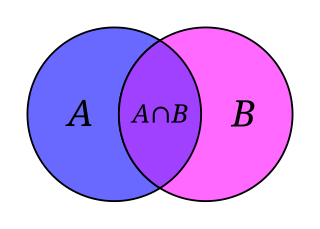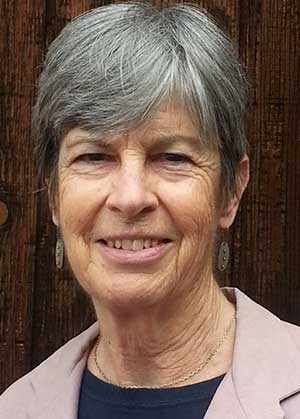Related Research Articles

Epistemology, or the theory of knowledge, is the branch of philosophy concerned with knowledge. Epistemology is considered a major subfield of philosophy, along with other major subfields such as ethics, logic, and metaphysics.

Georg Ferdinand Ludwig Philipp Cantor was a mathematician. He played a pivotal role in the creation of set theory, which has become a fundamental theory in mathematics. Cantor established the importance of one-to-one correspondence between the members of two sets, defined infinite and well-ordered sets, and proved that the real numbers are more numerous than the natural numbers. Cantor's method of proof of this theorem implies the existence of an infinity of infinities. He defined the cardinal and ordinal numbers and their arithmetic. Cantor's work is of great philosophical interest, a fact he was well aware of.

Set theory is the branch of mathematical logic that studies sets, which can be informally described as collections of objects. Although objects of any kind can be collected into a set, set theory, as a branch of mathematics, is mostly concerned with those that are relevant to mathematics as a whole.

Willard Van Orman Quine was an American philosopher and logician in the analytic tradition, recognized as "one of the most influential philosophers of the twentieth century". From 1930 until his death, Quine was continually affiliated with Harvard University in one way or another, first as a student, then as a professor. He filled the Edgar Pierce Chair of Philosophy at Harvard from 1956 to 1978.

Ian MacDougall Hacking was a Canadian philosopher specializing in the philosophy of science. Throughout his career, he won numerous awards, such as the Killam Prize for the Humanities and the Balzan Prize, and was a member of many prestigious groups, including the Order of Canada, the Royal Society of Canada and the British Academy.

Gaston Bachelard was a French philosopher. He made contributions in the fields of poetics and the philosophy of science. To the latter, he introduced the concepts of epistemological obstacle and epistemological break. He influenced many subsequent French philosophers, among them Michel Foucault, Louis Althusser, Dominique Lecourt and Jacques Derrida, as well as the sociologists Pierre Bourdieu and Bruno Latour.

Early modern philosophy is a period in the history of philosophy that overlaps with the beginning of the period known as modern philosophy.
Sandra G. Harding is an American philosopher of feminist and postcolonial theory, epistemology, research methodology, and philosophy of science. She directed the UCLA Center for the Study of Women from 1996 to 2000, and co-edited Signs: Journal of Women in Culture and Society from 2000 to 2005. She is currently a Distinguished Professor Emeritus of Education and Gender Studies at UCLA and a Distinguished Affiliate Professor of Philosophy at Michigan State University. In 2013 she was awarded the John Desmond Bernal Prize by the Society for the Social Studies of Science (4S).

Originally, fallibilism is the philosophical principle that propositions can be accepted even though they cannot be conclusively proven or justified, or that neither knowledge nor belief is certain. The term was coined in the late nineteenth century by the American philosopher Charles Sanders Peirce, as a response to foundationalism. Theorists, following Austrian-British philosopher Karl Popper, may also refer to fallibilism as the notion that knowledge might turn out to be false. Furthermore, fallibilism is said to imply corrigibilism, the principle that propositions are open to revision. Fallibilism is often juxtaposed with infallibilism.

Helen Elizabeth Longino is an American philosopher of science who has argued for the significance of values and social interactions to scientific inquiry. She has written about the role of women in science and is a central figure in feminist epistemology and social epistemology. She is the Clarence Irving Lewis Professor of Philosophy at Stanford University. In 2016, she was elected to the American Academy of Arts and Sciences.
Larry Laudan was an American philosopher of science and epistemologist. He strongly criticized the traditions of positivism, realism, and relativism, and he defended a view of science as a privileged and progressive institution against popular challenges. Laudan's philosophical view of "research traditions" is seen as an important alternative to Imre Lakatos's "research programs".
Epistemology or theory of knowledge is the branch of philosophy concerned with the nature and scope (limitations) of knowledge. It addresses the questions "What is knowledge?", "How is knowledge acquired?", "What do people know?", "How do we know what we know?", and "Why do we know what we know?". Much of the debate in this field has focused on analyzing the nature of knowledge and how it relates to similar notions such as truth, belief, and justification. It also deals with the means of production of knowledge, as well as skepticism about different knowledge claims.

Philosophy is a systematic study of general and fundamental questions concerning topics like existence, reason, knowledge, values, mind, and language. It is a rational and critical inquiry that reflects on its own methods and assumptions.
Feminist epistemology is an examination of epistemology from a feminist standpoint.
Structuralism is a theory in the philosophy of mathematics that holds that mathematical theories describe structures of mathematical objects. Mathematical objects are exhaustively defined by their place in such structures. Consequently, structuralism maintains that mathematical objects do not possess any intrinsic properties but are defined by their external relations in a system. For instance, structuralism holds that the number 1 is exhaustively defined by being the successor of 0 in the structure of the theory of natural numbers. By generalization of this example, any natural number is defined by its respective place in that theory. Other examples of mathematical objects might include lines and planes in geometry, or elements and operations in abstract algebra.

Tamara Horowitz was an American philosopher who worked on epistemology, feminist philosophy and the philosophy of science. She spent much of her career at the University of Pittsburgh, and was appointed chair of the philosophy department there in September 1999, but died a few months later.
Timothy Joel McGrew is a professor of philosophy at Western Michigan University, and the chair of the department of philosophy there. His research interests include epistemology, the history and philosophy of science, and the philosophy of religion. He is a specialist in the philosophical applications of probability theory.

Feminist philosophy of science is a branch of feminist philosophy that seeks to understand how the acquirement of knowledge through scientific means has been influenced by notions of gender identity and gender roles in society. Feminist philosophers of science question how scientific research and scientific knowledge itself may be influenced and possibly compromised by the social and professional framework within which that research and knowledge is established and exists. The intersection of gender and science allows feminist philosophers to reexamine fundamental questions and truths in the field of science to reveal how gender biases may influence scientific outcomes. The feminist philosophy of science has been described as being located "at the intersections of the philosophy of science and feminist science scholarship" and has attracted considerable attention since the 1980s.

Alan Richard White was an analytic philosopher who worked mainly in epistemology, the philosophy of mind, and, latterly, legal philosophy. Peter Hacker notes that he was "the most skillful developer of Rylean ... ideas in philosophical psychology" and that "if anyone surpassed Austin in subtlety and refinement in the discrimination of grammatical differences, it was White." Richard Swinburne remarks that "during the heyday of 'ordinary language philosophy' no tongue practised it better."
Géraldine Legendre is a French-American cognitive scientist and linguist known for her work on French grammar, on mathematical models for the development of syntax in natural languages including harmonic grammar and Optimality Theory, and on universal grammar and innate syntactic ability of humans in natural language. She is a professor of cognitive science at Johns Hopkins University and the chair of the Johns Hopkins Cognitive Science Department.
References
- ↑ Date information sourced from Library of Congress Authorities data, via corresponding WorldCat Identities linked authority file (LAF) .
- ↑ Faculty of the Department of Philosophy at the University of Hawaii at Manoa
- ↑ "Emeriti Faculty". Philosophy Department. University of Hawaii at Manoa . Retrieved 18 February 2019.
- 1 2 http://www.hawaii.edu/phil/cvs/PDF/MTilesCV04.pdf%5B%5D CV at www.hawaii.edu/phil/
- ↑ Jongsma, Calvin (21 March 2016). "Philosophical Introduction to Set Theory". MAA Reviews . Retrieved 18 February 2019.
- 1 2 Anellis, Irving H. (1992). "Review of Mary Tiles, The Philosophy of Set Theory: A Historical Introduction to Cantor's Paradise". Modern Logic . 2 (4): 392–404. A reply by Tiles was published as Tiles, M. (1993). "Letters". Philosophia Mathematica . 1: 73–74. doi:10.1093/philmat/1.1.73.
- 1 2 Berg, Michael (1 December 2004). "The Philosophy of Set Theory: An Historical Introduction to Cantor's Paradise". MAA Reviews . Retrieved 18 February 2019.
- 1 2 Brown, James Robert (1990). "The Philosophy of Set Theory: An Introduction to Cantor's Paradise, Mary Tiles, Oxford: Blackwell, 1989, x + 239 p. £30". Dialogue . 29 (2): 314–316. doi:10.1017/S0012217300013068. S2CID 170501682.
- 1 2 Holmes, M. R. (2006). "Mary Tiles. The philosophy of set theory, an historical introduction to Cantor's paradise. Courier Dover Publications, 2004, xiii + 239 pp". Bulletin of Symbolic Logic . 12 (4): 601–604. doi:10.2178/bsl/1164056809. S2CID 124006063.
- ↑ Post, Robert C. (September 1997), "Living in a Technological Culture: Human Tools and Human Values by Mary Tiles, Hans Oberdiek", Isis, 88 (3): 580–581, doi:10.1086/383842, JSTOR 236224
- ↑ Harper, Richard (September 1999), "Book Review: Living in a Technological Culture: Human Tools and Human Values", Sociological Research Online, 4 (3): 308–310, doi:10.1177/136078049900400313, S2CID 148748374
- ↑ Bermudez, Luis (April 1996), "An Introduction to Historical Epistemology: The Authority of Knowledge by Mary Tiles and Jim Tiles", Philosophical Books, 37 (2): 124–125, doi:10.1111/j.1468-0149.1996.tb02965.x
- ↑ Williams, John N. (March 1996), "Tiles, Mary and Tiles, Jim, An Introduction to Historical Epistemology: The Authority of Knowledge", Book reviews, Australasian Journal of Philosophy, 74 (1): 232–234, doi:10.1080/00048409612347191
- ↑ Hamlyn, D. W. (October 1994), "Reviewed Work: An Introduction to Historical Epistemology by Mary Tiles, Jim Tiles", Philosophy, 69 (270): 511–513, doi:10.1017/s0031819100047355, JSTOR 3751375, S2CID 170941671
- ↑ Moore, A. W. (1992). "Mathematics and the Image of Reason". Philosophical Books . 33 (1): 62–64. doi:10.1111/j.1468-0149.1992.tb02334.x.
- ↑ Burgess, John P. (August–September 1992), "Mathematics and the Image of Reason by Mary Tiles", American Mathematical Monthly , 99 (7): 688–691, doi:10.2307/2325018, JSTOR 2325018
- ↑ Franklin, James (1993), "Mathematics and the image of reason", Mathematical Reviews , MR 1141388
- ↑ Garciadiego, Alejandro R. (1990), "The philosophy of set theory", Mathematical Reviews , MR 1012115
- ↑ Rockmore, Tom (1986). "Reviewed Work: Bachelard: Science and Objectivity by Mary Tiles". The British Journal for the Philosophy of Science . 34 (4): 529–531. doi:10.1093/bjps/37.4.529. JSTOR 687382.
- ↑ Savers, Sean (1986). "Bachelard: Science and Objectivity". Philosophical Books . 27: 41–43. doi:10.1111/j.1468-0149.1986.tb01136.x.
- ↑ Schaffer, Simon (1986). "Bachelard. Science and Objectivity. By Mary Tiles. Cambridge: University Press. 1984. xxii + 242 pp. £20.00 and £7.95". French Studies . 40 (1): 106–107. doi:10.1093/fs/XL.1.106.
- ↑ Clark, J. G. (April 1986), "Bachelard: Science and Objectivity by Mary Tiles", The Modern Language Review, 81 (2): 492–493, doi:10.2307/3729764, JSTOR 3729764
- ↑ Gutting, Gary (June 1990), "Bachelard: Science and Objectivity by Mary Tiles", Philosophy of Science, 57 (2): 343–344, doi:10.1086/289559, JSTOR 187847
- ↑ Smith, Colin (July 1987), "Bachelard: Science and Objectivity by Mary Tiles", Philosophy, 62 (241): 399–401, doi:10.1017/s0031819100038912, JSTOR 3750849, S2CID 170124970